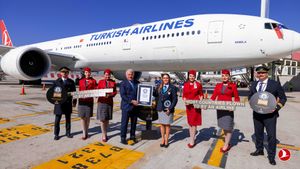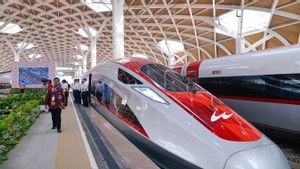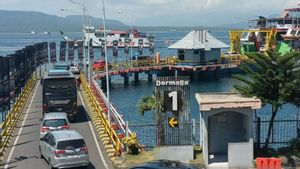JAKARTA - The government continues to build a Base Transceiver Station (BTS) network so that it is evenly distributed throughout Indonesia as an effort to accelerate digital transformation. The provision of 4G signals and internet access does not only focus on urban areas, but also in remote, residential villages as well as the outermost, underdeveloped, and leading (3T) areas.
The President Director of the Telecommunications and Information Accessibility Agency (BAKTI) of the Ministry of Communication and Information (Kominfo), Anang Latif, said the target for BTS acceleration phase 1 in 3T villages has been achieved 86 percent. 86 percent of which 1,900 locations are on air from the target of 4,200 locations in 2022," said Anang quoted by Antara, Friday, April 15. According to the Director of BAKTI Kominfo, the construction of phase 1 continues to be accelerated and is targeted to be 100 percent completed by 2022. Phase 2 of 4G BTS in 3,704 locations, will be carried out in stages according to fiscal availability. In 2022, the existing budget will be allocated for the construction of 4G BTS in 2,300 locations, "he said. government fiscal. "The state budget allocated for the construction of 4,200 BTS 4G is Rp. 11 trillion. One of the largest components for logistics costs is p delivery of materials, because many construction sites do not yet have basic physical infrastructure, such as roads, so they must be reached by helicopter," he explained.
The Ministry of Communications and Informatics appreciates the support of cellular operators for the provision of signals in the 3T area. According to him, cellular operators and vendors are very supportive of the signal supply program. According to Anang, the development of digital infrastructure in remote villages is not an easy thing. The challenges of natural geographical conditions, logistical problems, transportation, and the availability of human resources are obstacles in themselves. BAKTI Kominfo builds 4G BTS in 3T areas which are very difficult to reach. In fact, many villages do not yet have proper road infrastructure and electricity. According to him, in the mountainous region of Papua, air transportation is needed for transportation of materials and equipment. The availability of transportation is not proportional to the amount of material and during the COVID-19 pandemic, restrictions on the mobility of people and goods also affect supply chain activities for BTS construction. At the global level, Anang stated that there is currently a shortage of microchip supply which has an impact on the availability of several telecommunications equipment. BTS," he said. In addition, security disturbances are a challenge, especially in Papua. Anang stated that when the number of BTS locations built in Papua and West Papua reached around 65 percent of the total BTS built by BAKTI throughout Indonesia. However, the acceleration of equitable development in the 3T area continues. Anang is optimistic that the target of 4G BTS development in Indonesia will be achieved this year. "All these challenges and problems have not dampened the government's determination to continue providing 4G signals and internet access for people in the 3T area," he said.
The English, Chinese, Japanese, Arabic, and French versions are automatically generated by the AI. So there may still be inaccuracies in translating, please always see Indonesian as our main language. (system supported by DigitalSiber.id)











